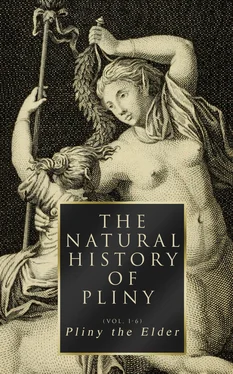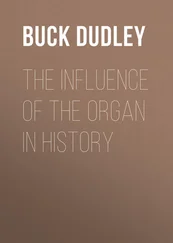CHAP. 2. (2.)—OF THE FORM OF THE WORLD 91.
Table of Contents
That it has the form of a perfect globe we learn from the name which has been uniformly given to it, as well as from numerous natural arguments. For not only does a figure of this kind return everywhere into itself 92and sustain itself, also including itself, requiring no adjustments, not sensible of either end or beginning in any of its parts, and is best fitted for that motion, with which, as will appear hereafter, it is continually turning round; but still more, because we perceive it, by the evidence of the sight, to be, in every part, convex and central, which could not be the case were it of any other figure.
CHAP. 3. (3.)—OF ITS NATURE; WHENCE THE NAME IS DERIVED.
Table of Contents
The rising and the setting of the sun clearly prove, that this globe is carried round in the space of twenty-four hours, in an eternal and never-ceasing circuit, and with incredible swiftness 93. I am not able to say, whether the sound caused by the whirling about of so great a mass be excessive, and, therefore, far beyond what our ears can perceive, nor, indeed, whether the resounding of so many stars, all carried along at the same time and revolving in their orbits, may not produce a kind of delightful harmony of incredible sweetness 94. To us, who are in the interior, the world appears to glide silently along, both by day and by night.
Various circumstances in nature prove to us, that there are impressed on the heavens innumerable figures of animals and of all kinds of objects, and that its surface is not perfectly polished like the eggs of birds, as some celebrated authors assert 95. For we find that the seeds of all bodies fall down from it, principally into the ocean, and, being mixed together, that a variety of monstrous forms are in this way frequently produced. And, indeed, this is evident to the eye; for, in one part, we have the figure of a wain, in another of a bear, of a bull, and of a letter 96; while, in the middle of them, over our heads, there is a white circle 97.
(4.) With respect to the name, I am influenced by the unanimous opinions of all nations. For what the Greeks, from its being ornamented, have termed κόσμος, we, from its perfect and complete elegance, have termed mundus . The name cœlum , no doubt, refers to its being engraven, as it were, with the stars, as Varro suggests 98. In confirmation of this idea we may adduce the Zodiac 99, in which are twelve figures of animals; through them it is that the sun has continued its course for so many ages.
CHAP. 4. (5.)—OF THE ELEMENTS 100AND THE PLANETS 101.
Table of Contents
I do not find that any one has doubted that there are four elements. The highest of these is supposed to be fire, and hence proceed the eyes of so many glittering stars. The next is that spirit, which both the Greeks and ourselves call by the same name, air 102. It is by the force of this vital principle, pervading all things and mingling with all, that the earth, together with the fourth element, water, is balanced in the middle of space. These are mutually bound together, the lighter being restrained by the heavier, so that they cannot fly off; while, on the contrary, from the lighter tending upwards, the heavier are so suspended, that they cannot fall down. Thus, by an equal tendency in an opposite direction, each of them remains in its appropriate place, bound together by the never-ceasing revolution of the world, which always turning on itself, the earth falls to the lowest part and is in the middle of the whole, while it remains suspended in the centre 103, and, as it were, balancing this centre, in which it is suspended. So that it alone remains immoveable, whilst all things revolve round it, being connected with every other part, whilst they all rest upon it.
(6.) Between this body and the heavens there are suspended, in this aërial spirit, seven stars 104, separated by determinate spaces, which, on account of their motion, we call wandering, although, in reality, none are less so 105. The sun is carried along in the midst of these, a body of great size and power, the ruler, not only of the seasons and of the different climates, but also of the stars themselves and of the heavens 106. When we consider his operations, we must regard him as the life, or rather the mind of the universe, the chief regulator and the God of nature; he also lends his light to the other stars 107. He is most illustrious and excellent, beholding all things and hearing all things, which, I perceive, is ascribed to him exclusively by the prince of poets, Homer 108.
CHAP. 5. (7.)—OF GOD 109.
Table of Contents
I consider it, therefore, an indication of human weakness to inquire into the figure and form of God. For whatever God be, if there be any other God 110, and wherever he exists, he is all sense, all sight, all hearing, all life, all mind 111, and all within himself. To believe that there are a number of Gods, derived from the virtues and vices of man 112, as Chastity, Concord, Understanding, Hope, Honour, Clemency, and Fidelity; or, according to the opinion of Democritus, that there are only two, Punishment and Reward 113, indicates still greater folly. Human nature, weak and frail as it is, mindful of its own infirmity, has made these divisions, so that every one might have recourse to that which he supposed himself to stand more particularly in need of 114. Hence we find different names employed by different nations; the inferior deities are arranged in classes, and diseases and plagues are deified, in consequence of our anxious wish to propitiate them. It was from this cause that a temple was dedicated to Fever, at the public expense, on the Palatine Hill 115, and to Orbona 116, near the Temple of the Lares, and that an altar was elected to Good Fortune on the Esquiline. Hence we may understand how it comes to pass that there is a greater population of the Celestials than of human beings, since each individual makes a separate God for himself, adopting his own Juno and his own Genius 117. And there are nations who make Gods of certain animals, and even certain obscene things 118, which are not to be spoken of, swearing by stinking meats and such like. To suppose that marriages are contracted between the Gods, and that, during so long a period, there should have been no issue from them, that some of them should be old and always grey-headed and others young and like children, some of a dark, complexion, winged, lame, produced from eggs, living and dying on alternate days, is sufficiently puerile and foolish. But it is the height of impudence to imagine, that adultery takes place between them, that they have contests and quarrels, and that there are Gods of theft and of various crimes 119. To assist man is to be a God; this is the path to eternal glory. This is the path which the Roman nobles formerly pursued, and this is the path which is now pursued by the greatest ruler of our age, Vespasian Augustus, he who has come to the relief of an exhausted empire, as well as by his sons. This was the ancient mode of remunerating those who deserved it, to regard them as Gods 120. For the names of all the Gods, as well as of the stars that I have mentioned above 121, have been derived from their services to mankind. And with respect to Jupiter and Mercury, and the rest of the celestial nomenclature, who does not admit that they have reference to certain natural phenomena 122?
But it is ridiculous to suppose, that the great head of all things, whatever it be, pays any regard to human affairs 123. Can we believe, or rather can there be any doubt, that it is not polluted by such a disagreeable and complicated office? It is not easy to determine which opinion would be most for the advantage of mankind, since we observe some who have no respect for the Gods, and others who carry it to a scandalous excess. They are slaves to foreign ceremonies; they carry on their fingers the Gods and the monsters whom they worship 124; they condemn and they lay great stress on certain kinds of food; they impose on themselves dreadful ordinances, not even sleeping quietly. They do not marry or adopt children, or indeed do anything else, without the sanction of their sacred rites. There are others, on the contrary, who will cheat in the very Capitol, and will forswear themselves even by Jupiter Tonans 125, and while these thrive in their crimes, the others torment themselves with their superstitions to no purpose.
Читать дальше












